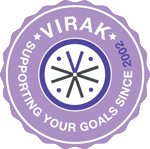AGILE Project Management Course 
Agile Project Management is suitable for any business that faces a growing number of important and strategic systems projects, with tight deadlines in ever more competitive markets. Scrum is an approach that enables, via an iterative and incremental approach and teamwork which is facilitated by a constant dialogue between users and developers, the delivery of products that are fit for purpose and operational more quickly.
Success in an agile project is about managing the outputs of teamwork, and not just the inputs. With the customer as a partner throughout the life cycle, who qualifies, prioritises tests and validates the requirements, the team takes responsibility for the results. The benefits are frequent deliveries of the most important outputs that are developed iteratively as prototypes and versions.
Project success with agile methods requites tight cooperation between the stakeholders, articulated by roles such as Sponsor, Product Owner, Visionary, Technical Coordinator and Scrum Master, as well as a team empowered and equipped to make decisions.
Agile Project Management is a public domain user centred ‘design to time’ approach to developing business systems, which relies on a team-based, business oriented and iterative process. It enables agile development, with Scrum; XP and approaches that are based on tests, risk management and version management, with governance, roles, products and principles.

Based on eight principles, Agile Project Management covers the entire product or systems development life cycle and is supported by all the necessary technical and quality controls. Success on an agile project requires close co-operation between all parties and a team empowered to make decisions:
- Focus on the business need: Manage a business “baseline” to guarantee alignment and integrity of the solution
- Deliver on Time: Manage an evolving scope in order to create rapidly useful and usable versions
- Collaborate: Synchronise progress and achieve synergy across functional and organizational boundaries
- Never compromise quality: Define and align compliance, acceptance and operational criteria
- Build incrementally from firm foundations: Elaborate progressively a realistic solution, that is validated, verified and pragmatic
- Develop iteratively: Develop in small steps, in modular fashion, and maintain the ability to adapt, change, re-focus and pivot
- Communicate constantly: Ensure that communication between stakeholders supports and reinforces the project
- Demonstrate control: Show evidence of the management of traceability, reversibility and adequate governance
The users of Agile methods can now be found in every industrial sector. Thanks to its governance structure and its focus on prototyping around user needs that are understood progressively and aligned with the business goals and benefits, the AgilePM approach is as well suited to product development and it is to software development.
Benefits and content of our Agile Project Management course
By participating in the Agile Project Management course, you acquire a recognised quality process that can enhance your skills and help you to rapidly achieve key business objectives.
This course is a practical case study based approach to learning by experience and discussion. Project teams can often improve by up to 30% thanks to a second iteration. This course aims to provide you with the first project iteration in condensed workshop format.
The course uses the principle of “Learning by Doing”, also known as “Experiential Learning”. The quickest, most effective and enjoyable way to learn is by living through a situation. An active approach draws out individual anecdotal experience and encourages participation.
The course is balanced between theoretical and practical sessions. Participants work towards meeting the business objectives against tight deadlines by following the AgilePM life cycle of feasibility, foundations, exploration iterations, engineering iterations and deployment.
By taking this Agile Project Management course, you will:
- Acquire an overview of the Agile Project Management process and build practical skills.
- Be able to promote the successful use of agile methods inside an organisation.
The main themes of our Agile training:
• Importance of a process based on speed, focus and agility
• Business and operational benefits of agile methods
• Suitability criteria and agile project contracting
• Principals of agile project management and how to apply them
• Philosophy, culture and route to success with agile methods
• Organizational structure, roles and practices in agile teams
• Involvement of clients, customers and user in agile projects
• Facilitated workshops; planning, organizing and orchestrating
• Analysis, communication, modelling and simulation
• Life cycle, definition and development of prioritised products
• Definition, classification, adaptation and production of deliverables
• Analysis of system and organisational architecture and processes
• Appreciation and understanding of business and market aspects
• Management of tight cost and time targets (sprints and timeboxes)
• Estimating and value-driven planning games
• Prototype planning and management with sprints and timeboxes
• Design for life cycle and sustainability of results
• Risk management in agile project management environments
• Application of good practices from Lean, Scrum, Kanban, WP, TQM
• Importance of agile configuration management and traceability
• Successful testing on agile projects with user participation
• Definition and management of quality aligned to business benefits
• Planning and sustenance of maintenance, operations and support
• Governance aspects, management of versions and contractual aspects
• Innovation, creativity, learning and process maturity
• Change, expectations, stakeholder
